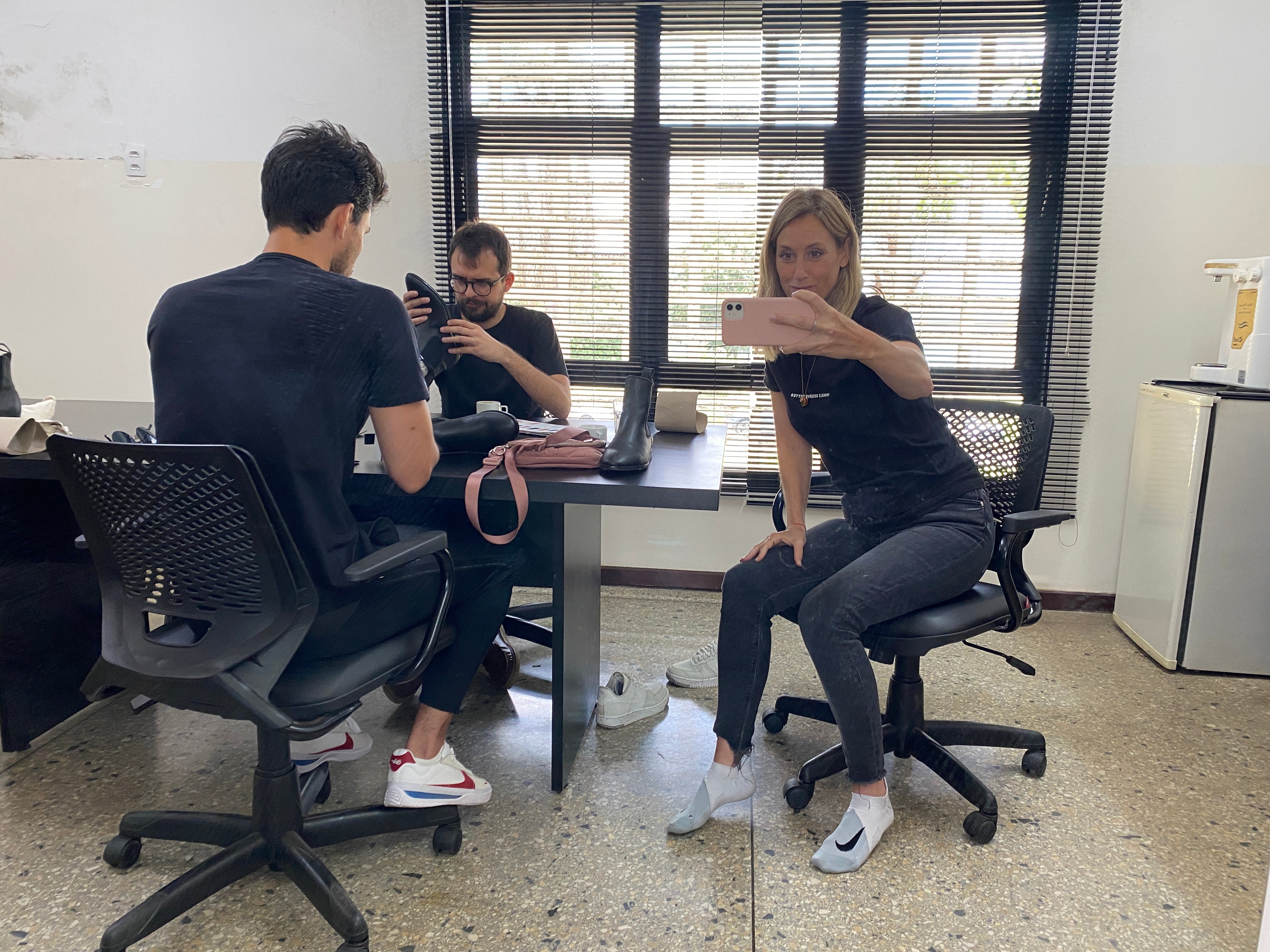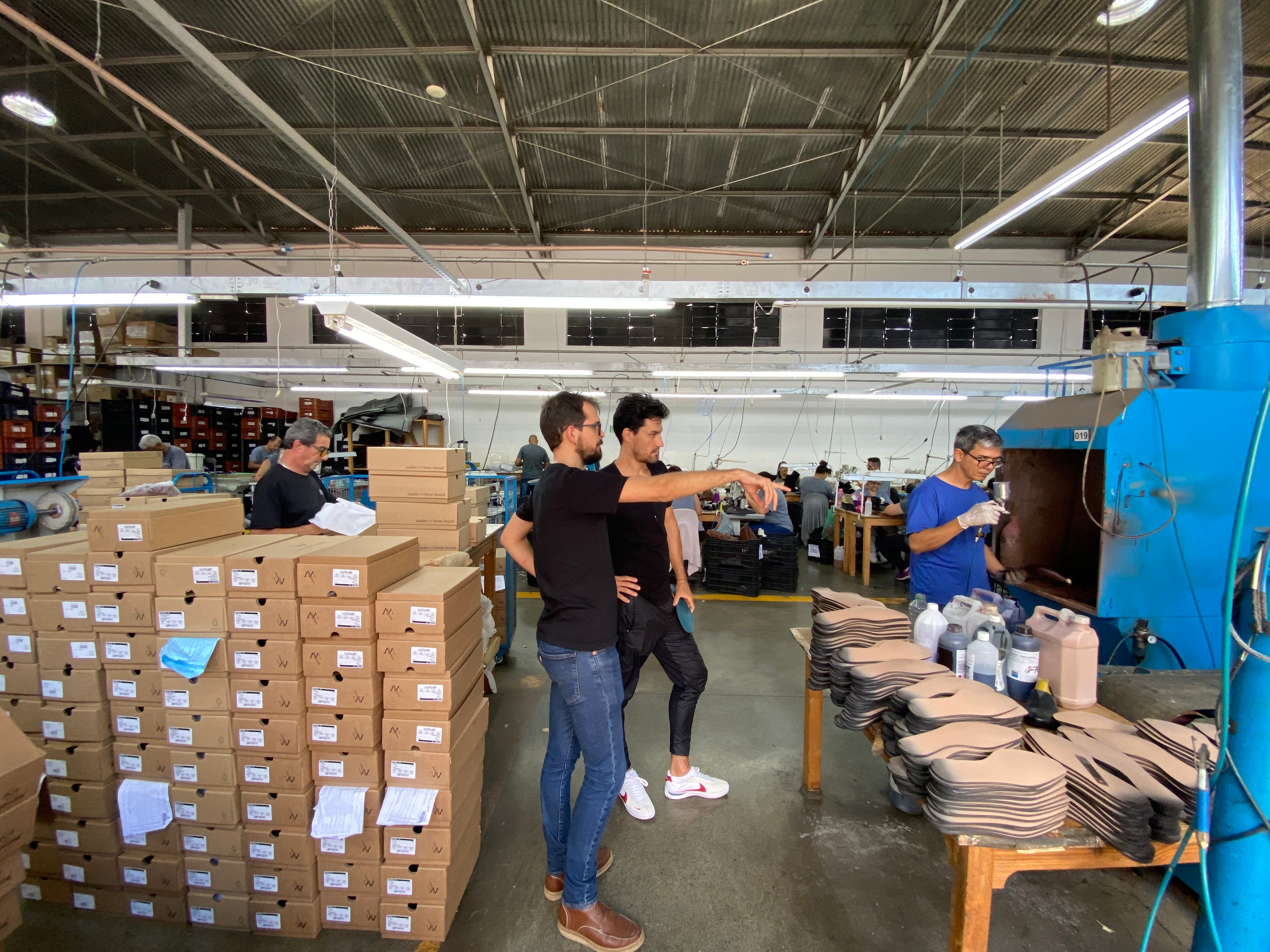Exploring the World of Plant-Based Synthetic Faux Leather: Cactus, Pineapple, Apple, Banana, Mango, Mushroom, and Mirum
In the pursuit of sustainable, vegan alternatives to traditional leather, plant-based synthetic faux leathers have gained popularity. Let's delve into the fascinating world of cactus, pineapple, apple, banana, mango, mushroom, and mirum leathers.
Cactus Leather: at Voes & Co we are using Desserto cactus leather which is a sustainable alternative to traditional leather made from cactus plants. It is a vegan, cruelty-free, and environmentally friendly material that has gained attention as a more sustainable option for the fashion and accessories industry.
The cactus leather is created by a Mexican company called Desserto, which developed a patented process for transforming the leaves of the Opuntia cactus into a leather-like material. The Opuntia cactus, also known as the prickly pear cactus, is a plant that is abundant in Mexico and requires very little water to grow, making it a highly sustainable and renewable resource.
The process of making Desserto cactus leather involves harvesting mature cactus leaves, cleaning and processing them, and then combining them with non-toxic additives to create a flexible and durable material. The resulting material closely resembles traditional leather in terms of its appearance, texture, and performance.
Desserto cactus leather offers several advantages over animal leather and synthetic alternatives. It is free from harmful chemicals, PVC, and phthalates, making it a safer option for both human health and the environment. It is also biodegradable, reducing waste and pollution compared to conventional leather, which is typically treated with toxic chemicals to prevent decomposition.
Additionally, cactus leather is more sustainable in terms of land and water use. Cactus plants are highly resistant to arid conditions and require significantly less water compared to traditional crops like cotton or animal farming for leather production. By utilizing cactus plants, Desserto helps conserve water resources and minimizes the ecological impact of the fashion industry.
Overall, Desserto cactus leather represents an innovative and sustainable solution for reducing the environmental footprint of the fashion industry, offering an alternative to traditional leather that is cruelty-free, environmentally friendly, and visually appealing.
Pineapple Leather: Also known as Piñatex, pineapple leather is created from the fibers of pineapple leaves, a byproduct of the fruit industry. This material offers a similar texture to genuine leather, along with a distinctive aesthetic. It has gained recognition for its eco-friendliness and suitability for fashion items.
Apple Leather: Obtained from apple waste, such as peels and cores, apple leather presents a unique and sustainable alternative. Through a process of pulverization, binding, and finishing, the discarded apple parts are transformed into a soft, pliable material with a wide range of applications.
Banana Leather: Using banana plant stems and fibers, this variant of faux leather provides a cruelty-free alternative. The strong and flexible nature of banana leather makes it suitable for various products, including bags, wallets, and footwear. Its biodegradable properties contribute to its appeal as an eco-conscious material.
Mango Leather: By utilizing mango seeds, this leather alternative not only reduces waste but also showcases the natural beauty of the fruit. With its durability and unique grain patterns, mango leather provides a distinctive aesthetic appeal. It is used in various luxury products and has gained popularity in recent years.
Mushroom Leather: Made from mycelium, the root structure of mushrooms, this leather substitute is both biodegradable and renewable. Mushroom leather can be grown in a controlled environment, resulting in a versatile material with a wide range of applications. Its sustainability and potential for customization make it a promising choice for vegan, plant based faux leather.
Mirum: A recent addition to the plant-based leather alternatives, Mirum is made from a combination of virgin natural materials and upcycled agricultural sidestreams. Nature provides a renewable, abundant, and diverse offering of inputs to select from to deliver the functionality and aesthetics desired. MIRUM is made with the utmost stewardship of nature in mind, for many of its ingredients this means using by-products of other industries. An example of this is using coconut husk fiber (called coir) which is a by-product of producing coconut water and oil. When its inputs come from a managed forest, such as natural rubber and cork (here again, MIRUM uses cork powder, a by-product of making wine stoppers), they use Forest Stewardship Council (FSC) certified ingredients.
An important ingredient in MIRUM is Natural Fiber Welding patented plant-based curative. In material science, the curing process imparts a material with durability, toughness, and/or enhanced resistance to premature degradation. The chemistry used in the curing process is called a curative. Our patented curative is entirely plant-based and sourced from renewable feedstocks. This is in contrast to standard curatives for natural rubber which rely on petrochemical additives and sulfur chemistry which result in an irreversible reaction.
The emergence of plant-based synthetic faux leathers such as cactus, pineapple, apple, banana, mango, mushroom, and Mirum offers a sustainable and cruelty-free alternative to traditional leather, showcasing the endless possibilities of environmentally conscious materials in various industries, especially for us in the vegan fashion and footwear industry.
We are creating designer boots that are similar to leather and showcasing the environmental benefits of vegan leather that feature more plants and less plastic (less PU polyurethane vegan leather and less PVC).


